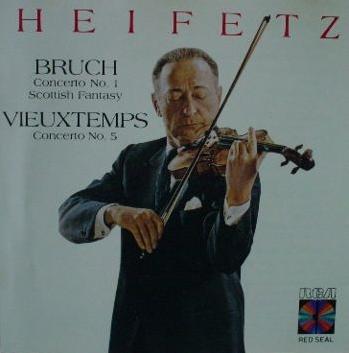Violin Concerto No. 1 (Bruch): Difference between revisions
Jump to navigation
Jump to search

imported>Ro Thorpe (reordered) |
imported>Caesar Schinas m (Bruch Violin Concerto Number 1 moved to Violin Concerto No. 1 (Bruch): as requested by Ro) |
||
| (15 intermediate revisions by 5 users not shown) | |||
| Line 1: | Line 1: | ||
'''[[Max Bruch]]''' composed his '''Violin Concerto Number 1''' in G minor in 1866, when he was 28 years old. | {{subpages}} | ||
'''[[Max Bruch]]''' composed his '''Violin Concerto Number 1''' in G minor, Opus 26, in 1866, when he was 28 years old. One of three violin concertos written by the composer, it is one of the most popular in the repertoire. | |||
A highly romantic concerto in the usual classical three movements, | |||
many famous violinists, from [[Jascha Heifetz]] to [[Sarah Chang]], have recorded it. | |||
The first movement is a prelude, allegro moderato, and | |||
the second a very moving adagio. The finale, marked allegro energico, is the most difficult to play. | |||
{{Image|Heifetz1.jpg|left|400px|The Heifetz recording.}} | |||
Latest revision as of 10:02, 9 June 2009
Max Bruch composed his Violin Concerto Number 1 in G minor, Opus 26, in 1866, when he was 28 years old. One of three violin concertos written by the composer, it is one of the most popular in the repertoire.
A highly romantic concerto in the usual classical three movements, many famous violinists, from Jascha Heifetz to Sarah Chang, have recorded it.
The first movement is a prelude, allegro moderato, and the second a very moving adagio. The finale, marked allegro energico, is the most difficult to play.
